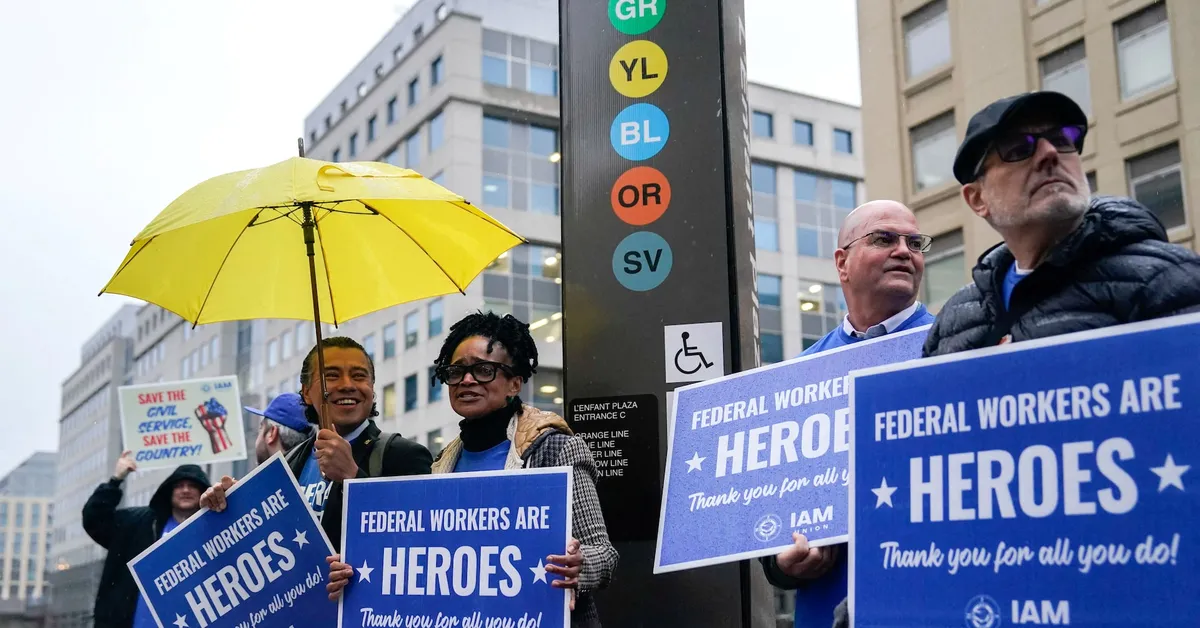
On April 9, 2023, a significant ruling by a U.S. appeals court has opened the door for 18 federal agencies to resume the termination of thousands of employees who were previously let go during President Donald Trump's efforts to streamline the federal workforce. These employees had been reinstated by a lower court, but the 4th U.S. Circuit Court of Appeals, based in Richmond, Virginia, has now cast doubt on the authority of that judge's ruling.
The 4th Circuit Court concluded that the lower-court judge likely exceeded his jurisdiction when he mandated the reinstatement of probationary employees, citing violations related to mass layoff regulations. Probationary employees are typically those with less than a year of service in their current positions, although some may be long-standing federal workers transitioning to new roles.
In a decisive 2-1 ruling, a three-judge panel issued a stay on the lower court's ruling from April 2, which affected employees residing or working in Washington, D.C., as well as in 19 states involved in the lawsuit concerning the mass firings. This ruling comes as the Trump administration prepares to appeal the earlier decision.
Neither the White House nor the U.S. Department of Justice, along with the office of Maryland Attorney General Anthony Brown—who is spearheading the lawsuit—provided immediate comments following the ruling. According to court filings, the federal agencies implicated in the case indicated that nearly all of the terminated employees had been offered reinstatement, with most accepting the offer. However, these workers were placed on paid leave instead of being returned to their work positions.
In a related matter, the U.S. Supreme Court intervened on April 4, pausing a separate ruling from a San Francisco judge that required six federal agencies to reinstate close to 17,000 probationary workers. This order affects the U.S. Department of Defense, which reported firing approximately 360 employees, alongside five other agencies involved in the Maryland lawsuit. The Supreme Court determined that the nonprofit groups associated with the judge's ruling lacked legal standing to sue, presenting a different challenge for the Trump administration in relation to the states involved in the Maryland lawsuit.
The federal government terminated around 25,000 probationary employees in mid-February following directives from the U.S. Office of Personnel Management to identify non-essential probationary workers. These firings are part of a broader initiative by Trump and billionaire Elon Musk aimed at significantly reducing the size of the federal bureaucracy and cutting government expenditures, a move that has garnered substantial legal opposition.
The states involved in the lawsuit contend that the mass firings breached federal laws mandating a 60-day advance notice for mass layoffs, a requirement that was overlooked when probationary employees were terminated in February. The legal case in San Francisco, initiated by unions, nonprofit organizations, and the state of Washington, asserts that the Office of Personnel Management lacked the authority to instruct other agencies to dismiss probationary workers.
As this situation continues to unfold, it raises important questions about federal employment practices and the legal complexities surrounding the termination of government workers. The outcomes of these proceedings may have lasting implications for the federal workforce and the management of government employees.